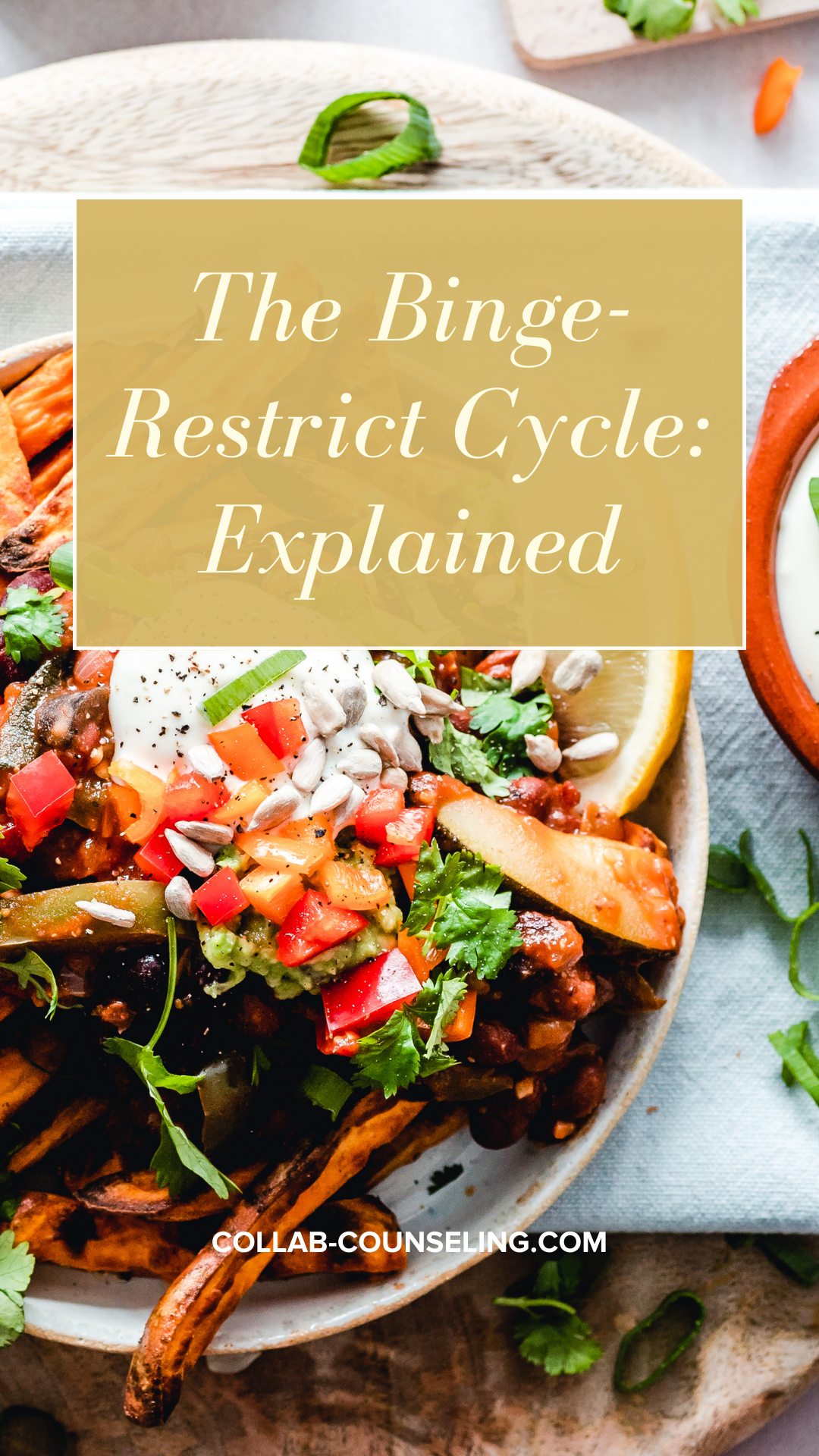Eating Disorder Awareness Week Post Roundup
Happy Eating Disorder Awareness Week 2025! Today, we are sharing a round-up of all things eating disorder awareness! Want to learn more about eating disorders? Looking to better understand treatment options for yourself or a loved one? Click on the following links for in-depth resources on each topic
5 Things You Need to Know About Overeating
Weekends tend to be very chaotic for people when it comes to eating. Do you struggle with overeating? Let me guess when you overeat you beat yourself up for it? Feeling extra full or even just a little full has the ability to ruin your mood and maybe your day? I am hoping what I have to say about overeating with ease your mind a bit and offer you a better understanding of why you are overeating. Here are 5 things you need to know about “over” eating.
Drunkorexia
It’s Friday night—maybe even Thursday—and you're getting ready to head out with friends. You haven’t eaten since lunch, maybe skipped dinner on purpose, and squeezed in a quick workout before hitting the bars. It’s just another night out, right?
It might feel like that, but this pattern of behavior is actually known as "drunkorexia," a term used to describe the practice of restricting food, over-exercising, or purging to compensate for the calories in alcohol. Although not an official diagnosis, it’s a form of disordered eating that essentially prioritizes alcohol over nutrition. It’s become so common, especially in college, that it can be easy to overlook how harmful it really is.
10 Ways You Might Be Restricting Without Realizing It
You might have heard that restriction is the number one driving force behind feeling out of control with food. Feeling out of control with food can play out in various ways such as binge eating until you feel physically uncomfortable, feeling like you can't keep certain foods in the house because you will eat it ALL (GASP), and/or thinking about food all day. Not to mention did you know that restiction of food mimics addiction? Yes, read that again. So generally the people that have rules around food and/or are micromanaging food feel addicted to food. But what does it mean to “restrict”?
5 Signs You Have a Positive Relationship with Food
Here at Collaborative Counseling and Nutrition we are passionate about helping others create a positive relationship with food and body. We talk a lot about what an unhealthy relationship with food looks like but do you know what a healthy/positive relationship with food looks like?
Eating Disorders in Minoritized Communities
Today, we are sharing an introduction post to eating disorders in marginalized, minoritized, and underrepresented communities. We will cover statistics, stereotypes, and barriers to diagnosis and treatment. Keep an eye out for upcoming posts covering eating disorders in these groups (ie. EDs in the Black Community; EDs in the LGBTQIA2+ Community, etc.).
Eating Disorders and Athletes
Athletes are not immune from the impact of diet culture. In fact, athletes are 2-3 times more likely to develop an eating disorder compared to non-athletes. Up to 45% of female athletes and 19% of male athletes struggle with disordered eating. Additionally, 84% of female college athletes report having disordered patterns of eating or have engaged in unhealthy weight control practices at one time.
Ozempic and Eating Disorders
Research shows both losing weight and restrictive dieting increase the risk for eating disorders. Many assume a restrictive diet has a name, rules, and a specific duration, but the term “restrictive diet” simply refers to eating less than your body needs. Not only are GLP-1’s prescribed in addition to restrictive diets, but they also make following a restrictive diet much easier due to their mechanism of action: extreme appetite suppression and delayed gastric emptying.
Eating Disorder Levels of Care
You are thinking about getting help for your relationship with food and/or your body. This is no small feat! There is much to be proud of here, especially in a diet-culture-saturated society. Thankfully, there are plenty of options or ways to get help for your specific experience. A range of care exists to meet your needs, so to decide what might be the best for you, it can be helpful to learn more about what options do exist!
Understand the Restrict/Binge Cycle
To struggle with your eating behavior can be so difficult, isolating, scary, and confusing! Not to mention all of the messages that exist within our society that tell us how we “should” be eating, what we should avoid, how often we should be eating, etc. It is absolutely exhausting. The more you learn about yourself, your body, and your own eating patterns, you will find emotions play a role.
What is Diet Culture?
Diet culture is a well-used term in the eating disorder/anti-diet space. Today we are revisiting an old post on diet culture, sharing updated information, and new insights so you can better understand and identify how diet culture shows up in your life.
The Difference Between Disordered Eating and Eating Disorders
Today on the blog we are diving into the difference between disordered eating and eating disorders. Learn the differences and what to look for.












